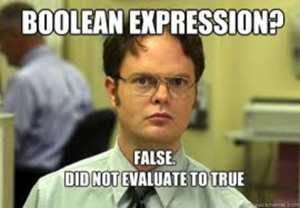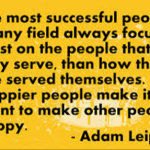How do you introduce yourself?
How do you introduce yourself when you meet a visitor, a guest in your office or home, in an interview or when you are introduced to someone for the first time? Are you shy, are you aggressive, are you assertive, or are you to the point? It is important how one introduces himself/herself in person or in correspondence because it matters a lot in developing relationships. When we are asked to introduce ourselves, it matters how crisply and assertively we introduce our self. Assertiveness is a skill regularly referred to in social and communication skills training. Often it’s wrongly confused with aggression; assertive individuals aim to be neither passive nor aggressive in their interactions with other people.
Assertiveness helps in being able to express feelings, wishes, wants and desires appropriately and is an important personal and interpersonal skill. One needs to be assertive in all interactions with other people, whether at home, in a party, in a concert, or at work, with employers, customers or colleagues it avoids ambiguity of any sort.
 I think we introduce and re-introduce ourselves to the world around us time and again; in all relationships of ours and in many situations we introduce our new traits, attributes to maintain validity of situation, action taken and for logical inference. And each time, assertiveness can help in expressing our self in a clear, open and reasonable way, without undermining the rights of our self or of others.
I think we introduce and re-introduce ourselves to the world around us time and again; in all relationships of ours and in many situations we introduce our new traits, attributes to maintain validity of situation, action taken and for logical inference. And each time, assertiveness can help in expressing our self in a clear, open and reasonable way, without undermining the rights of our self or of others.
When people adopt a passive response in any situation they do it because they have a strong need to be liked by others. Such people do not regard themselves as equals because they seek attachment with someone for a selfish reason, and also because they place greater weight on the rights, wishes and feelings of others. Being passive results in failure to communicate thoughts or feelings and results in people doing things they really do not want to do in the hope that they might please others. This also means that they allow others to take responsibility, to lead and make decisions for them. I call such people slimy. They are dangerous to organizations and society.
Passive responding can encourage treatment that underpins a submissive role. While the underlying causes of passive responding are often poor self-confidence and self-esteem, therefore passive introduction responds itself in yet further reducing self-worth.
 It’s very important to share relatable information every time you are introducing yourself. For example when you meet a physician for the first time you will share information regarding your age, health condition and duration of the persisting condition; when your friend introduces you to her friend you will share your name, profession etc; when you enter a police station you will share information regarding the purpose of your visit, your address, and the problem faced by you. As a student in a class room it is important for you to share unique information about yourself that will help the other students (and the teacher) to remember who you are and also to feel like you’ve got something in common with them. So, each introduction in life has a different relevance. And, each introduction establishes credibility and likability of building bond.
It’s very important to share relatable information every time you are introducing yourself. For example when you meet a physician for the first time you will share information regarding your age, health condition and duration of the persisting condition; when your friend introduces you to her friend you will share your name, profession etc; when you enter a police station you will share information regarding the purpose of your visit, your address, and the problem faced by you. As a student in a class room it is important for you to share unique information about yourself that will help the other students (and the teacher) to remember who you are and also to feel like you’ve got something in common with them. So, each introduction in life has a different relevance. And, each introduction establishes credibility and likability of building bond.
 It is all up to us to avoid awkward conversation-stoppers like giving unwarranted details about ourselves. We should know where to draw lines – I recall this person I met in a party who dragged his information to no end; he told the group, many of whom he was meeting for the first time about his political connections, his messy divorce, and that though he looked old he was only 33 years old. He became nothing but laughing stock in the party. So cut short your introduction according the situation. Remember your actions speak louder than words do.
It is all up to us to avoid awkward conversation-stoppers like giving unwarranted details about ourselves. We should know where to draw lines – I recall this person I met in a party who dragged his information to no end; he told the group, many of whom he was meeting for the first time about his political connections, his messy divorce, and that though he looked old he was only 33 years old. He became nothing but laughing stock in the party. So cut short your introduction according the situation. Remember your actions speak louder than words do.
Some people brag about themselves while introducing and some are very sloppy. I have seen this – both make others uneasy. So it’s worth investing in learning how to introduce you to the world. A fun way to make introductions a little more comfortable is to have some fun with people around in casual situations.
 When you go for a job interview, your introduction should be concise enough to hold the interest of the interviewer. Make a quick recap of your most compelling qualifications, your achievements and connectivity with the applied post and this would suffice. You could also throw in a couple of tidbits which are not essential to the job, but reflect your qualities like the fact that you are an avid reader, would throw light on your studiousness. Or, you like mountaineering shows your spirit of adventure. Your goal is to connect personally with the interviewer as well as to show that you’re qualified for the job.
When you go for a job interview, your introduction should be concise enough to hold the interest of the interviewer. Make a quick recap of your most compelling qualifications, your achievements and connectivity with the applied post and this would suffice. You could also throw in a couple of tidbits which are not essential to the job, but reflect your qualities like the fact that you are an avid reader, would throw light on your studiousness. Or, you like mountaineering shows your spirit of adventure. Your goal is to connect personally with the interviewer as well as to show that you’re qualified for the job.
Of course, your initial conversation should show your enthusiasm for the job and your interest to work in the organization. However, don’t overdo it and don’t spend too much time talking about yourself. The interviewer has an agenda and limited time; so keep it short so you can move on to the next question.
Remember, the interviewer may follow up your introduction with supplementary questions, so it’s important to remember that you will need to support whatever declaration you make during your introduction. Be prepared to provide specific examples of how and where you have utilized your characteristics and assets successfully so far in your career.
When people are in hurry to grab the limelight in get-togethers and parties – when they tell too much about themselves – they are labeled as “bore.” You might have a lot about yourself which you want the world to learn. Don’t be in hurry. Introduce yourself sophisticatedly. You can exchange your visiting card; design your card elaborative by giving all details of your professional networking such as your LinkedIn account, Facebook account details, and your professional memberships. I think all those who want to get connected with you for whatever reasons will get connected with you anyhow, hence be brief.
 Some golden tips: brief introductions are always best. Provide the bare minimum the other person needs to know. Do not maintain distance or a cold approach – converse politely and you’ll see that during the conversation more can be revealed in a natural way. Be appropriate while introducing you. Don’t make an unnecessary fuss; you might lose some golden chances. And most importantly focus on others because to become successful you require them.
Some golden tips: brief introductions are always best. Provide the bare minimum the other person needs to know. Do not maintain distance or a cold approach – converse politely and you’ll see that during the conversation more can be revealed in a natural way. Be appropriate while introducing you. Don’t make an unnecessary fuss; you might lose some golden chances. And most importantly focus on others because to become successful you require them.













































